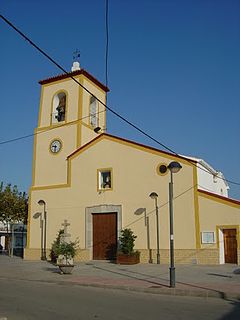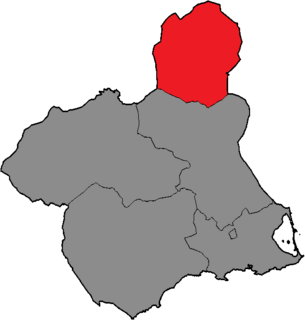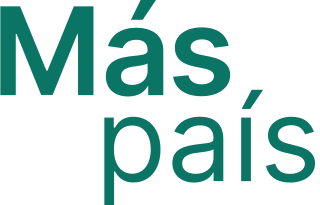
The city of Cartagena, known in the colonial era as Cartagena de Indias, is a city and major port on the northern coast of Colombia in the Caribbean Coast Region. Founded in 1533, city's strategic location between the Magdalena and Sinú Rivers gave it easy access to the interior of New Granada and made it a main port for trade between Spain and its overseas empire, establishing its importance by the early 1540s. During the colonial era it was a key port for the export of Peruvian silver to Spain and for the import of enslaved Africans under the asiento system. It was defensible against pirate attacks in the Caribbean.

Mazarrón is a municipality in the autonomous community and province of Murcia, southeastern Spain. The municipality has an area of 318.7 square kilometres (123.1 sq mi), and a population of 31,562 inhabitants in 2019. A military fort built between 1930 and 1936 during the reign of Alfonso XIII of Spain and the Second Spanish Republic exists as a tourist attraction on the old road between Mazarrón and Cartagena, and although it is accessible from the Bay of Mazarrón it is not in the municipality itself.

Torre-Pacheco is a municipality in the autonomous community of Murcia in southeastern Spain. It covers an area of 189.4 km² and its population in 2017 was 35,198. The only high ground in the municipality is Cabezo Gordo hill, the location of the protected Sima de las Palomas archeological site. The town has one secondary education institution, the I.E.S. Gerardo Molina.

The Diocese of Cartagena is the diocese of the city of Cartagena in the Ecclesiastical province of Granada in Spain.

The Region of Murcia, is an autonomous community of Spain located in the southeast of the state, bordered by Andalusia, Castilla-La Mancha and the Valencian Community, on the Mediterranean coast.

Cartagena is a Spanish city and a major naval station located in the Region of Murcia, by the Mediterranean coast, south-eastern Spain. As of January 2018, it has a population of 213,943 inhabitants, being the region's second-largest municipality and the country's sixth-largest non-provincial-capital city. The metropolitan area of Cartagena, known as Campo de Cartagena, has a population of 409,586 inhabitants.
José Antonio Pardo Lucas is a Spanish professional footballer who plays for Extremadura UD as a central defender.

Vox is a political party in Spain founded on 17 December 2013, by former members of the People's Party (PP). The party is described variously as right-wing, right-wing populist, populist radical right and/or far-right.

The 2015 Murcian regional election was held on Sunday, 24 May 2015, to elect the 9th Regional Assembly of the autonomous community of the Region of Murcia. All 45 seats in the Regional Assembly were up for election. The election was held simultaneously with regional elections in twelve other autonomous communities and local elections all throughout Spain.

The 1983 Murcian regional election was held on Sunday, 8 May 1983, to elect the 1st Regional Assembly of the autonomous community of the Region of Murcia. All 43 seats in the Regional Assembly were up for election. The election was held simultaneously with regional elections in twelve other autonomous communities and local elections all throughout Spain.

The 1995 Murcian regional election was held on Sunday, 28 May 1995, to elect the 4th Regional Assembly of the autonomous community of the Region of Murcia. All 45 seats in the Regional Assembly were up for election. The election was held simultaneously with regional elections in twelve other autonomous communities and local elections all throughout Spain.

The 2019 Murcian regional election was held on Sunday, 26 May 2019, to elect the 10th Regional Assembly of the autonomous community of the Region of Murcia. All 45 seats in the Regional Assembly were up for election. The election was held simultaneously with regional elections in eleven other autonomous communities and local elections all throughout Spain, as well as the 2019 European Parliament election.

Ganar la Región de Murcia was an electoral alliance formed by United Left–Greens of the Region of Murcia and Building the Left–Socialist Alternative to contest the 2015 Murcian regional election. While the alliance had been intended as a "confluence" for left-wing political forces in the region, both Podemos and Equo refused to join it.
Zaragoza en Común is a municipalist movement aimed at "creating, from the confluence of people and political and social organizations, a new social majority to win the city for the people".

District One was one of the five constituencies represented in the Regional Assembly of Murcia, the regional legislature of the Region of Murcia. The constituency elected seven deputies. It comprised the municipalities of Lorca, Aguilas, Puerto Lumbreras, Totana, Alhama de Murcia, Librilla, Aledo and Mazarrón. The electoral system used the D'Hondt method and a closed-list proportional representation, with a minimum threshold of five percent regionally.

District Two was one of the five constituencies represented in the Regional Assembly of Murcia, the regional legislature of the Region of Murcia. The constituency last elected 11 deputies in 2015. It comprised the municipalities of Cartagena, La Unión, Fuente Alamo de Murcia, Torre-Pacheco, San Javier, San Pedro del Pinatar and Los Alcázares. The electoral system used the D'Hondt method and a closed-list proportional representation, with a minimum threshold of five percent regionally.

District Four was one of the five constituencies represented in the Regional Assembly of Murcia, the regional legislature of the Region of Murcia. The constituency last elected four deputies in 2015. It comprised the municipalities of Caravaca, Cehegín, Calasparra, Moratalla, Bullas, Pliego, Mula, Albudeite and Campos del Río. The electoral system used the D'Hondt method and a closed-list proportional representation, with a minimum threshold of five percent regionally.

District Five was one of the five constituencies represented in the Regional Assembly of Murcia, the regional legislature of the Region of Murcia. The constituency last elected two deputies in 2015. It comprised the municipalities of Yecla and Jumilla. The electoral system used the D'Hondt method and a closed-list proportional representation, with a minimum threshold of five percent regionally.

The next Murcian regional election will be held no later than Sunday, 28 May 2023, to elect the 11th Regional Assembly of the autonomous community of the Region of Murcia. All 45 seats in the Regional Assembly will be up for election.

Más País is a political party and electoral platform formed by Íñigo Errejón around Más Madrid in order to contest the November 2019 Spanish general election. The platform was announced on 22 September 2019 and was formally launched on 25 September, out of a desire of preventing dissatisfaction from centre-left voters over the failure in the government formation process between the Spanish Socialist Workers' Party (PSOE) and Unidas Podemos to translate into a higher abstention rate. During the party's presentation, Errejón announced that it would avoid running in the smaller constituencies, where they would be unlikely to win any seat but could contribute to other left-of-centre parties—mainly PSOE and UP—losing out their own seats due to vote splitting.
















